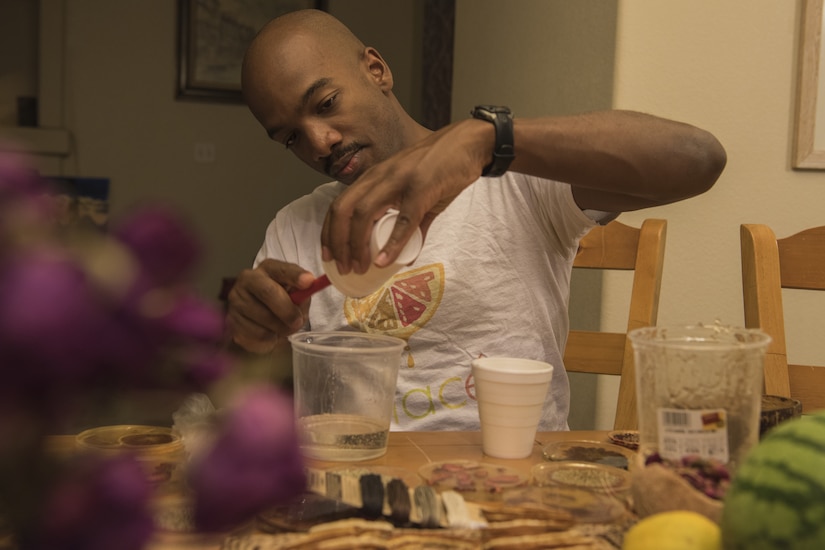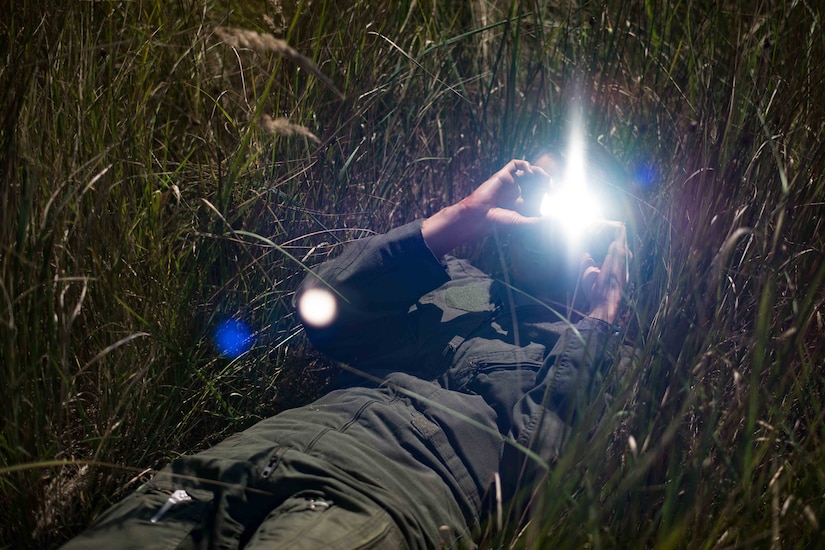By Air Force Airman 1st Class William Tracy, 50th Space Wing
SCHRIEVER AIR FORCE BASE, Colo. -- Leaning over a table with
a sanding mask on, Air Force Capt. Ramon Rosario, the executive officer for the
4th Space Operations Squadron here, smooths the edges of a coaster with a
cornucopia of fruit laid out in front of him like a Thanksgiving dinner.
“Strawberries are the hardest to dry the way you want them,”
Rosario said through his mask, eyes fixed on the coaster. “They retain too much
moisture and are hard to shape the right way.”
One may ask what strawberries and coasters have in common.
For Rosario, the question is: What more can he do with both to make art?
At home, Rosario finds time to engage in his passion --
using dried fruits as artistic centerpieces for his own creations, whose
creations span from coasters and earrings to necklaces, tie pins and
lampshades.
‘I Enjoy Everything About the Process’
“I enjoy everything about the process,” he said. “From the
idea to the final result.”
Rosario, a self-described chef, said he loves to experiment
in the kitchen.
“One day, I was candying oranges,” he recalled. “And when I
finished, I thought the oranges looked absolutely stunning in contrast to the
bright white color of the serving plate. It was then I thought ‘I could do
something with this.’”
Rosario soon graduated from small citrus fruits to larger,
more ambitious projects.
“It was a lot of trial and error, but I just kept going,” he
said.
His process begins at the grocery store, where he
hand-selects fruits he feels would be optimal for his creations.
At home, Rosario cuts the fruit, often in thin slices. He
then dries the cut fruit as he prepares an adhesive residue -- a delicate
process which involves a precise mixture of various components within a limited
window of time.
For most of his creations, once the adhesive resin is
prepared, he dips the dried fruit into it, coating it in a preservative which
helps retain color while giving the fruit a gleam.
Air Force Values
The end result is a preserved dried fruit Rosario uses for
whatever artistic purpose he desires. He said the overall process requires
attention to detail, focus and discipline -- traits he credits to the values he
has learned while serving in the Air Force.
“Joining the Air Force has significantly helped guide my
unstructured side,” he said. “Everything I learned in the Air Force applies to
my craft.”
Air Force 2nd Lt. Alexandra Mangueira, a satellite engineer
with 4th SOPS, who has known Rosario for more than two years, said she was
intrigued when she learned of his hobby, but was not surprised given his
artistic personality and work ethic.
fruit hobby craft art
Air Force Capt. Ramon Rosario, executive officer with the
4th Space Operations Squadron, clips the edges of a dried orange at his home in
Colorado Springs, Colo., Sept. 17, 2018. Air Force photo by Airman 1st Class
William Tracy
“He is definitely very unique, loyal and reliable,” she
said. “You can tell the work he does here at 4th SOPS reflects in his
craftsmanship -- it’s detail-oriented and organized.”
While Rosario said his art is a reflection of his work with
4th SOPS and his service in general, he added engaging in a personal passion
away from the workplace helps him become a better airman.
“This helps round myself out,” he said. “I come home after a
long day at work pushing papers, going to and scheduling meetings, and I come
back to this and it puts me at peace, clearing my mind for the next day.”
He encourages airmen to find time to engage in their own
passions outside of their work life in order to build their resiliency.
“You need something like this, as we often get all caught up
in the day-to-day work and it helps to have a hobby you love,” he said.
“Mangueira said she looks forward to seeing where Rosario’s
talent will lead.
“While we each serve under the same core values, it is our
diversity which gives us strength,” she said.









